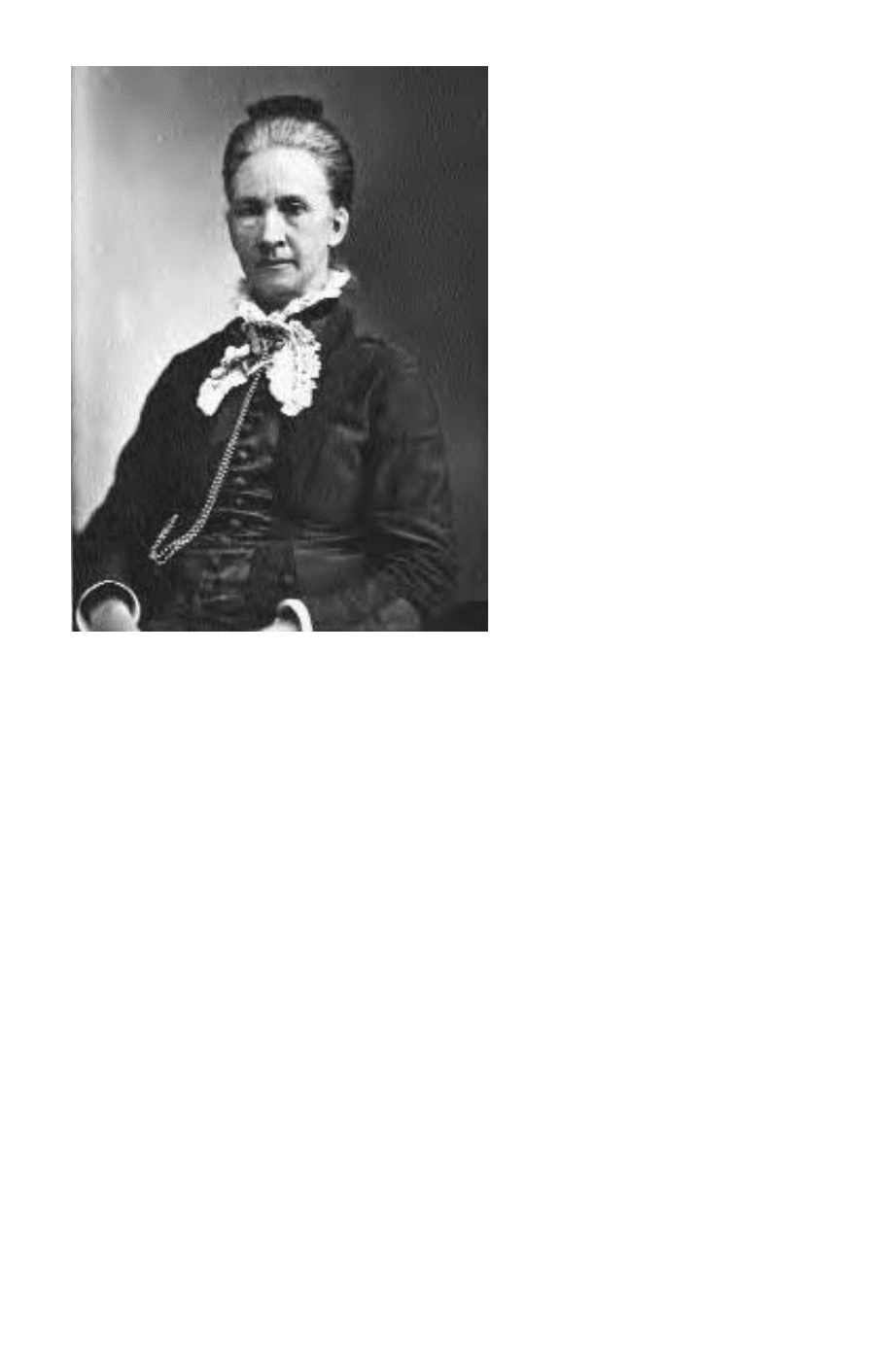Schenken Suzanne O’Dea. From Suffrage to the Senate: An Encyclopedia of American Women in Politics (2 Volumes)
Подождите немного. Документ загружается.


governments in attempts to rid communities of corruption and bossism
and to foster more efficient and orderly government. League members of-
ten brought other groups together in coalitions to support the changes in
municipal government. Although men often held visible roles in the cam-
paigns, league members frequently did most of the work.
In the 1930s, LWV supported U.S. participation in the World Court.
During the early 1940s, LWV members undertook a massive educational
program to support U.S. involvement in World War II, offering reasons
for its belief that the United States could not remain isolationist in its
policies. As the war drew to a close, LWV strongly supported the creation
of the United Nations. The league focused on good government issues and
provided leadership in state reapportionment advocacy during the 1960s.
As national leaders worked for reapportionment, the league was involved
in lobbying efforts and lawsuits to achieve equal representation in state
legislative bodies and in Congress.
From 1921 until the 1950s, LWV had opposed the Equal Rights
Amendment, concerned that it would make protective labor legislation
for women unconstitutional. As LWV became an advocate for civil rights,
it expanded its activism to include women’s rights and the Equal Rights
Amendment and vigorously supported ratification efforts in the 1970s.
Other areas in which LWV has provided leadership include passage of the
Federal Water Pollution Control Act of 1972, the Pregnancy Discrimina-
tion Act of 1978, Title IX of the Education Amendments of 1972, the Vot-
ing Rights Act of 1982, and the Family and Medical Leave Act of 1993.
LWV positions on issues result from nationwide study and consen-
sus among the members. To gather information, LWV members employ a
variety of sources, including interviews with technical experts and public
officials, public meetings, surveys, and the organization’s own resources.
After gathering information and developing a position on a topic, such as
national health care policy, statewide school formulas, or local recycling
policies, the league works to shape public policy. Grassroots lobbying, the
primary tool in LWV’s strategy, is supported by Washington-based volun-
teers, national board members, and staff.
LWV’s first priorities are enacting campaign finance reform and pro-
tecting the National Voter Registration Act. Its second level of priorities
includes enacting consumer protection legislation for health care, ensur-
ing health care for seniors by protecting and enhancing Medicare,
strengthening global warming standards, protecting clean air standards,
and strengthening the United Nations by providing adequate funding.
The LWV has provided information to voters about candidates since
1928, when it hosted “Meet the Candidates,” the first national radio
broadcast of a candidate forum. In 1976, the league sponsored televised
League of Women Voters 395

debates between presidential candidates Gerald Ford and Jimmy Carter,
for which it won an Emmy award.
LWV has state organizations in every state, the District of Columbia,
Hong Kong, and the Virgin Islands and more than 1,000 local groups.
LWV opened its membership to men in 1974.
See also Cable Acts; Catt, Carrie Clinton Lane Chapman; Coverture; Education
Amendments of 1972, Title IX; Equal Rights Amendment; Family and Medical
Leave Act of 1993; National American Woman Suffrage Association;
Nineteenth Amendment; Pregnancy Discrimination Act of 1978; Protective
Legislation; Public Offices, Women Elected to; Sheppard-Towner Maternity
and Infancy Protection Act of 1921; Suffrage; Willebrandt, Mabel Walker;
Women’s Bureau
References Breckenridge, Women in the Twentieth Century: A Study of Their
Political, Social and Economic Activities (1933); Lemons, The Woman Citizen
(1973); www.lwv.org; Young, In the Public Interest (1989).
Lease, Mary Elizabeth Clyens (1850–1933)
A compelling orator, Mary Elizabeth Lease supported a range of social
causes and became a leader of the Populist Party in the late 1890s. Lease
began her reform work in 1883, when she joined the Woman’s Christian
Temperance Union and began giving speeches. In the mid-1880s, she be-
came involved in the suffrage movement and wrote a series of newspaper
articles titled “Are Women Inferior to Men?” She served as the president of
the Wichita Equal Suffrage Association and joined the Knights of Labor
and the Kansas Farmers’ Alliance.
In 1885, Lease began appearing as a paid lecturer, conducted a fund-
raising tour for the Irish National League, and helped form a group to as-
sist small farmers. As a severe drought, high shipping costs, and mortgage
foreclosures took their toll on farmers in 1889, Lease encouraged them to
organize the People’s Party, which became the Populist Party. She toured
Kansas in 1890 and made more than 160 speeches for the party. Her fiery
speeches and her deep voice resonated with discontented farmers as she
admonished then to “raise less corn and more hell.” Controversy sur-
rounded her—supporters called her Queen Mary, and detractors called
her the Kansas Pythoness.
In the 1890s, Lease helped extend the party’s efforts into Missouri,
the West, and the South and became a national leader. A delegate to the
party’s 1892 Kansas convention, she successfully worked for a suffrage
plank in the platform. Lease campaigned with the party’s presidential can-
didate James B. Weaver and helped the party win several races in Kansas.
In recognition of her efforts, Lease was appointed president of the State
Board of Charities, but her inability to compromise led to her removal.
396 Lease, Mary Elizabeth Clyens

She challenged it and sought reinstatement. The Kansas Supreme Court
ruled in her favor after a thirty-year-long battle.
Lease campaigned in 1896 for Populist presidential nominee William
Jennings Bryan, but the party had begun to lose its base. Following the
election, Lease lectured on woman suffrage and Prohibition, but her pub-
lic influence declined. From 1908 to 1918, she occasionally gave lectures for
the New York City Board of Education. She retired from public life in 1918.
Born in Ridgway, Pennsylvania, Mary Elizabeth Lease graduated
from St. Elizabeth’s Academy in Allegheny, New York, in 1868 with a
teaching certificate. After studying law at home, Lease was admitted to the
Kansas bar in 1889. She moved to Kansas in 1870 to teach at a Catholic
girls’ school in Osage Mission, marrying two year later. After she and her
husband struggled as farmers, they moved to Wichita, where he was a
pharmacist and she became involved in civic organizations. Lease and her
husband divorced in 1902.
In her book The Problem of Civilization Solved (1895), Lease advo-
cated nationalization of railroads, free trade, high tariffs, the initiative and
referendum, and other reforms.
See also Suffrage; Woman’s Christian Temperance Union
References Hardy, American Women Civil Rights Activists (1993); James, ed.,
Notable American Women 1607–1950 (1971).
Lee, Barbara (b. 1946)
African American Democrat Barbara Lee of California entered the U.S.
House of Representatives on 7 April 1998. Lee, who had been an aide for
Congressman Ronald V. Dellums for twelve years, ran for his seat when he
retired. She campaigned on the theme “carrying the baton.” Congress-
woman Lee’s priorities include increased funding for education and
cleanup of toxic waste sites, urban issues, and the military.
Born in El Paso, Texas, Barbara Lee earned her bachelor of arts de-
gree from Mills College in 1973 and her master’s degree in social work
from the University of California at Berkeley in 1975. A college course as-
signment to work for a political campaign led Lee to Congresswoman
Shirley Chisholm’s 1972 campaign for the Democratic Party’s presidential
nomination.
Lee served in the California Assembly from 1990 to 1996 and in the
California Senate from 1996 to 1998. While in the California legislature,
Lee successfully sponsored legislation to redevelop closed military facili-
ties and open a California trade office in Johannesburg, South Africa.
See also Congress, Women in; State Legislatures, Women in
References “Barbara Lee, D-Calif.” (1998).
Lee, Barbara 397

Lesbian Rights
Lesbian rights activists seek to end discrimination based on sexual orien-
tation in several areas, including housing, employment, family relation-
ships, criminal law, and threats and acts of violence. From the 1950s until
the acquired immunodeficiency syndrome (AIDS) epidemic in the 1980s,
lesbian activists generally supported their own organizations, but in the
1980s many joined forces with gay men to seek funds for AIDS research
and to pursue their political and civil rights.
For many lesbians the potential disclosure of their sexual orientation
posed a significant threat because exposure could result in the loss of em-
ployment or of custody of their children. In the 1950s, gathering with
other lesbians in bars or other public places exposed them to police raids
and the possibility that their names would appear in the newspaper. A
group led by Del Martin and Phyllis Lyon formed Daughters of Bilitis in
1955 to provide a safe place for lesbians to gather and later expanded its
mission to educating the public about homosexuals.
As the modern feminist movement emerged in the 1960s, several
leaders, including Rita Mae Brown, Ti-Grace Atkinson, and Kate Millett,
attempted to explain lesbianism to their feminist colleagues but were met
with confusion and condemnation. Feminist leader Betty Friedan publicly
referred to lesbians as “the lavender menace” and attempted to have les-
bians removed from the National Organization for Women’s (NOW)
leadership. In 1971, however, NOW passed a resolution recognizing “the
double oppression of women who are lesbians” and acknowledging “the
oppression of lesbians as a legitimate concern of feminism.”
A dozen women, including Rita Mae Brown, formed the Furies in 1971
and developed a feminist lesbian political view that argued that heterosex-
uality was the problem. Calling lesbianism a political choice, they based
their analysis on the belief that relationships between women and men in-
volved power and dominance. Rejecting power relationships, the Furies de-
scribed themselves as radical, separatist, and opposed to the patriarchy. The
group disbanded in 1973, unable to overcome differences in class. Other
lesbian groups published poetry, novels, and newspapers, formed collec-
tives, and opened businesses, creating a lesbian feminist counterculture.
A benchmark in gay activism resulted from a police raid in 1969 on
a gay and lesbian bar in New York City, the Stonewall Inn. As the police at-
tempted to close the bar and arrested its patrons, an angry riot erupted
that lasted three days. The events convinced many that as long as gays and
lesbians continued to conceal their sexual orientation, that is, to “stay in
the closet,” they would remain politically powerless and unable to claim
their civil rights as citizens.
398 Lesbian Rights

In the 1970s, lesbians and gays began to realize some of their goals.
About thirty cities passed civil rights ordinances banning discrimination
against lesbians and gays, and antidiscrimination lawsuits were filed for
employment and housing rights, for the right to serve in the military, and
on behalf of lesbian mothers for custody of their children. By the late
1990s, ten states and 165 communities had laws protecting lesbians and
gays from workplace discrimination, but a backlash developed. Colorado
provides an example of a state in which several communities had enacted
ordinances banning discrimination based on sexual orientation in several
areas, including public accommodations, employment, and education. In
1992, Colorado voters approved a state constitutional amendment pro-
hibiting all legislative, executive, or judicial action at any level of state or
local government intended to protect gays and lesbians. The U.S. Supreme
Court, however, found that the state amendment violated the equal pro-
tection clause of the Fourteenth Amendment.
Among the groups that advocate civil rights for lesbians and gays is
the Human Rights Campaign (HRC), the largest national lesbian and gay
political organization in the United States. HRC lobbies the federal gov-
ernment on gay, lesbian, and AIDS issues; educates the public; and partic-
ipates in election campaigns. The American Civil Liberties Union’s Les-
bian and Gay Rights Project takes cases to court that have a significant
effect on the lives of lesbians, gay men, and bisexuals and promotes laws
and policies to help achieve equality and fairness for them.
Before the 1970s, lesbians and gay men had held public offices, but
they had not revealed their sexual orientation. In 1974, two lesbians ran
for public office and became the first openly gay people to win, Elaine No-
ble to the Massachusetts House of Representatives and Kathy Kozachenko
to the Ann Arbor, Michigan, City Council. In 1998, Democrat Tammy
Baldwin became the first lesbian who had made public statements about
her sexual orientation to be elected to Congress.
See also American Civil Liberties Union; Atkinson, Ti-Grace; Baldwin, Tammy;
Bowers v. Hardwick; Brown, Rita Mae; Cammermeyer, Margrethe; Daughters of
Bilitis; Friedan, Betty Naomi Goldstein; Millett, Katherine (Kate) Murray; Na-
tional Organization for Women; Radicalesbians
References Cavin, “The Invisible Army of Women: Lesbian Social Protests,
1969–1988” (1990); Congressional Quarterly Almanac, 104th Congress, 2nd
Session...1996 (1997); Davis, Moving the Mountain (1991); www.aclu.org.
Lewis, Ann Frank (b. 1937)
Democratic Party strategist Ann F. Lewis was named counselor to Presi-
dent Bill Clinton in 1999 after serving as White House director of com-
Lewis, Ann Frank 399

munications from 1997 until her appointment as counselor. She served as
deputy campaign manager and director of communications in the 1996
Clinton-Gore Reelection Campaign.
Lewis entered politics in 1968 as an assistant to Boston’s mayor,
working for him until 1975. A congressional aide from 1976 to 1981, she
was political director for the Democratic National Committee from 1981
to 1985, when she became national director for Americans for Democratic
Action. She wrote a column for Ms. magazine from 1988 to 1992 and was
vice president of public policy for Planned Parenthood Federation of
America before joining the Clinton-Gore campaign in 1996.
Born in Jersey City, New Jersey, Lewis attended Radcliffe College
from 1954 to 1955. She is a founding member of the National Women’s
Political Caucus. Her brother is Barney Frank, a member of Congress.
See also Democratic Party, Women in the; Ms. Magazine; National Women’s
Political Caucus; Planned Parenthood Federation of America
References New York Times, 28 September 1987.
Liberalism
American liberalism gained its contemporary meaning through President
Franklin D. Roosevelt’s New Deal programs in the 1930s. Roosevelt’s New
Deal liberalism changed ideas about government’s duty and responsibility
in the nation’s economic life by developing federal welfare programs, redis-
tributing wealth, and enhancing the potential for equal opportunity. New
Deal legislation gave trade unions new protections and encouraged their
growth, altering the balance of power between employers and employees.
In the mid-1960s, liberal policies included the expansion of govern-
ment health, education, and other social programs for poor and low-
income families. Unlike New Deal programs, President Lyndon Johnson’s
Great Society programs addressed racism through the Civil Rights Act of
1964 and the Voting Rights Act of 1965 and included African Americans
in the social programs. The civil rights movement, which had created
pressure for passage of legislation promoting racial justice, inspired
women, gays and lesbians, Hispanics, Native Americans, and other groups
to press for recognition of their causes and for legislation to protect them.
The proposed Equal Rights Amendment serves as one example of an at-
tempt to define and guarantee a group’s rights. The U.S. Supreme Court
also participated in the liberal agenda through its 1954 decision desegre-
gating schools in Brown v. Board of Education and its 1973 decision legal-
izing abortion in Roe v. Wade.
The liberal agenda came under increasingly intense scrutiny in the
1970s as citizens evaluated the financial costs of social programs and
400 Liberalism

changes in social relationships and found the first too high and the second
too unsettling. Voters expressed their frustration with liberal policies by
electing conservatives Ronald Reagan and George Bush to the presidency.
By the 1988 presidential elections, the word liberal had become a pejora-
tive term and was referred to as the “L” word.
See also Civil Rights Act of 1964, Title VII; Voting Rights Act of 1965
References Foner and Garraty, eds., The Reader’s Companion to American His-
tory (1991).
Liliuokalani (1838–1917)
The last sovereign queen of the Hawaiian Islands, Liliuokalani took the
throne in 1891, during a turbulent time in the islands’ history. Born in
Honolulu, Liliuokalani attended a missionary school, where she learned
English. She inherited the throne from her brother King David Kalakaua,
who had ruled the islands from 1874 until his death in 1891. In 1887, he
had accepted a new constitution, demanded by American interests, that
forfeited much of the power of the monarchy to a cabinet controlled by
Americans. When Queen Liliuokalani ascended to the throne, she sought
to restore some of the monarchy’s power by issuing a new constitution,
which was her historic right as monarch. Native Hawaiians supported her
plan, but Americans who had financial interests in the islands’ sugar plan-
tations wanted the United States to annex the islands. Her attempt to bal-
ance the interests of native islanders and of foreigners was interpreted as
a capricious act by the Americans on the islands.
Lawyer Sanford Ballard Dole, who was the son of missionaries and
who had grown up on the islands, led a group that responded to Lili-
uokalani’s new constitution by establishing a republic in 1893 and depos-
ing Liliuokalani. They hoped to convince the United States to annex the
islands. President Grover Cleveland sent a representative to attempt to ne-
gotiate a solution to the problem, but was unsuccessful. Cleveland sent
another representative who offered to support the queen if she would
grant amnesty to the annexationists, but she hesitated and the opportu-
nity was lost.
On 4 July 1894, Sanford Dole and his followers announced that he
had become president of the Republic of Hawaii and the United States
government recognized the new government. Hawaiian royalists
protested the action and were jailed. Early in 1895, Liliuokalani formally
abdicated the throne in exchange for the freedom of the royalists. She was
imprisoned for misprision of treason, that is, knowing that a treasonous
act was planned by someone else. Tried and convicted, she was impris-
oned in Iolani Palace until February 1896. The United States annexed
Hawaii in 1898.
Liliuokalani 401

See also Mink, Patsy Matsu Takemoto
References Allen, The Betrayal of Liliuokalani: Last Queen of Hawaii, 1838–1917
(1982); Garraty and Carnes, eds., American National Biography (1999).
Lincoln, Blanche Lambert (b. 1960)
Democrat Blanche Lambert Lincoln of Arkansas served in the U.S. House
of Representatives from 3 January 1993 to 3 January 1997 and entered the
U.S. Senate on 3 January 1999. Lincoln started her political career as a re-
ceptionist and congressional aide to Representative Bill Alexander (D-
AR), working for him from 1982 to 1984. She was a researcher and lobby-
ist for the next six years.
In late 1991, while discussing problems in politics with a friend,
Lincoln decided to run for Congress to help remedy them. In the
Arkansas primary in 1992, she challenged Bill Alexander, who had been
involved in questionable activities, including 487 overdrafts at the
House of Representatives’ bank. The scandal gave political novice Lin-
coln the break she needed, and she easily defeated Alexander in the pri-
mary and her Republican opponent in the general election. Once in
Congress, she worked to enhance rural development, cut the federal
budget, reform welfare programs, and improve rural water and health
care access.
After becoming pregnant with twins in 1996, Lincoln did not seek a
third term. When Democratic senator Dale Bumpers announced his re-
tirement, Lincoln entered the race, saying: “Nearly one of every three sen-
ators is a millionaire, but there are only five mothers.” She based her cam-
paign on making the nation better for her children, improving education,
and using the federal budget surplus for the benefit of Social Security and
Medicare.
Born in Helena, Arkansas, Lincoln earned a bachelor of arts degree
from Randolph-Macon Woman’s College in 1982 and attended the Uni-
versity of Arkansas and the University of London.
See also Congress, Women in
References “Blanche Lincoln” (1998); Congressional Quarterly, Politics
in America 1996 (1995); “Ex-Rep. Lincoln to Seek Bumpers’ Senate Seat”
(1997).
Lloyd Bouquard, Rachel Marilyn Laird (b. 1929)
Democrat Marilyn Lloyd of Tennessee served in the U.S. House of Repre-
sentatives from 3 January 1975 to 3 January 1995. Lloyd served under the
name Marilyn Lloyd Bouquard in the 96th through 98th Congresses
(1979–1985). She entered politics after her husband, who was a candidate
402 Lincoln, Blanche Lambert

for Congress, died during the campaign. Democratic Party officials re-
cruited her to fill the vacancy on the ballot.
Congresswoman Lloyd worked to keep the Clinch River nuclear
breeder reactor a viable project in her district, but Congress killed it in
1983. She succeeded in convincing Congress to complete construction of
the Tellico dam after progress had stopped to protect snail darters, an en-
dangered fish species. Lloyd also wrote and passed a bill in 1982 to build
nuclear waste test facilities. Considered a conservative southern Demo-
crat, Lloyd changed her position on abortion from being prolife to pro-
choice. She also joined Congresswomen Patricia Schroeder and Beverly
Byron in their strong criticism of the Navy’s responses to the Tailhook
convention scandal involving naval officers’ sexual assaults on several
women. Lloyd retired in 1995.
Born in Fort Smith, Arkansas, Marilyn Lloyd attended Shorter Col-
lege in 1960.
See also Abortion; Congress, Women in; Military, Women in the; Schroeder,
Patricia Nell Scott; Sexual Harassment
References Congressional Quarterly, Politics in America 1994 (1993); Office of
the Historian, U.S. House of Representatives, Women in Congress, 1917–1990
(1991).
Lockwood, Belva Ann Bennett McNall (1830–1917)
An advocate for women’s rights and woman suffrage, Belva Lockwood was
the first woman admitted to practice before the U.S. Supreme Court and
U.S. Court of Claims. Born in Royalton Township, New York, Belva Lock-
wood attended Gasport Academy from 1853 to 1854 and earned her bach-
elor of science degree from Genesee College in 1857. She worked in edu-
cation for most of the 1860s.
After being denied admission to three law schools because she was a
woman, Lockwood entered National University Law School in 1871 and
completed the curriculum in 1873. When male students resisted graduat-
ing with her, she was denied her law school diploma. After appealing to
President Ulysses S. Grant, who was the school’s ex-officio president, she
received the degree. She was the first American woman to complete a
course of study at a university law school.
Three years later, Lockwood again encountered gender barriers. The
federal Court of Claims refused to permit her to plead before it, as did the
U.S. Supreme Court. She drafted a law to overcome the courts’ refusal to
admit women, lobbied Congress for it, publicized the issue with the help of
Myra Bradwell and her newspaper, and succeeded in getting it passed. In
1879, she became the first woman admitted to practice before the nation’s
highest court and the U.S. Court of Claims. The next year she sponsored
Lockwood, Belva Ann Bennett McNall 403

the first southern African American ad-
mitted to practice before the U.S. Supreme
Court.
A suffragist, Lockwood had helped
found the Universal Suffrage Association,
and in the 1870s and 1880s, she was active
in the National Woman Suffrage Associa-
tion. She addressed the Platform Commit-
tee of the Republican National Conven-
tion in 1884 to ask for woman suffrage.
Believing that publicity could benefit
women’s causes, in 1884 she accepted the
National Equal Rights Party’s nomination
for president of the United States. Her
platform included equal rights for all, re-
duction of the liquor traffic, uniform mar-
riage and divorce laws, and peace. Lock-
wood received 4,149 votes in six states. She
ran again in 1888, when she received fewer
votes but had increased visibility.
Lockwood was one of the attorneys representing Eastern Cherokee
Indians in a 1906 case against the United States. The case resulted from vi-
olations of the 1838 treaty that involved the relocation of thousands of
Cherokees from Georgia and Tennessee to Oklahoma. The relocation be-
came known as the Trail of Tears because about 4,000 Cherokees died on
the way. Arguing the case before the U.S. Supreme Court, she won a set-
tlement of $5 million for them.
See also Anthony, Susan Brownell; National American Woman Suffrage
Association; Suffrage
References Hardy, American Women Civil Rights Activists (1993); Morello, The
Woman Lawyer in America: 1638 to the Present (1986).
Lofgren, Zoe (b. 1947)
Democrat Zoe Lofgren of California entered the U.S. House of Represen-
tatives on 3 January 1995. Lofgren’s service to her congressional district
began in the 1970s, when she worked for Congressman Don Edwards in
his Washington, D.C., and district offices. When Edwards retired, she ran
for his seat. Early in her campaign, Lofgren gained national attention for
a dispute with state election officials. She had stated that her occupation
was county supervisor/mother. State election officials said that mother-
hood was a status, not an occupation, and that she could not use the de-
scription. Lofgren responded that officials’ objections were typical of the
404 Lofgren, Zoe
Belva Lockwood, the
first American
woman to graduate
from law school and
to practice before the
U.S. Supreme Court,
1885 (Library of
Congress)
